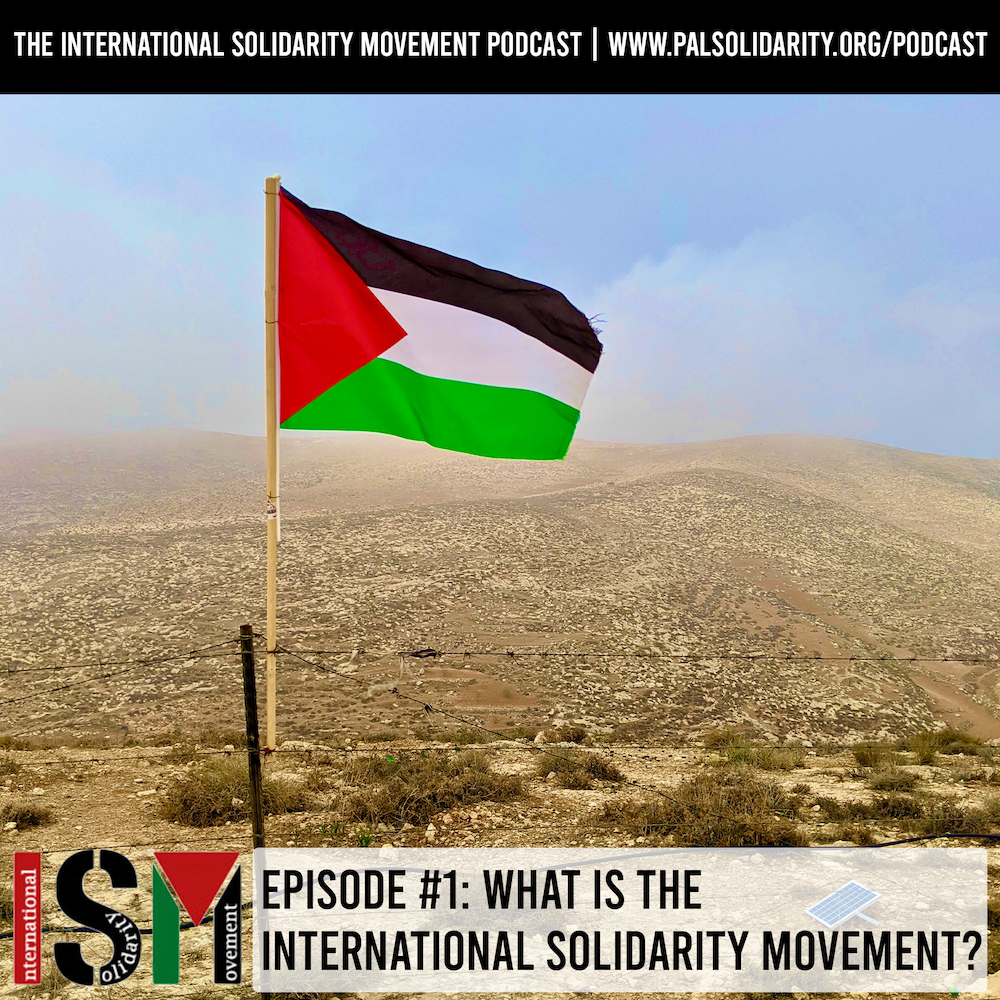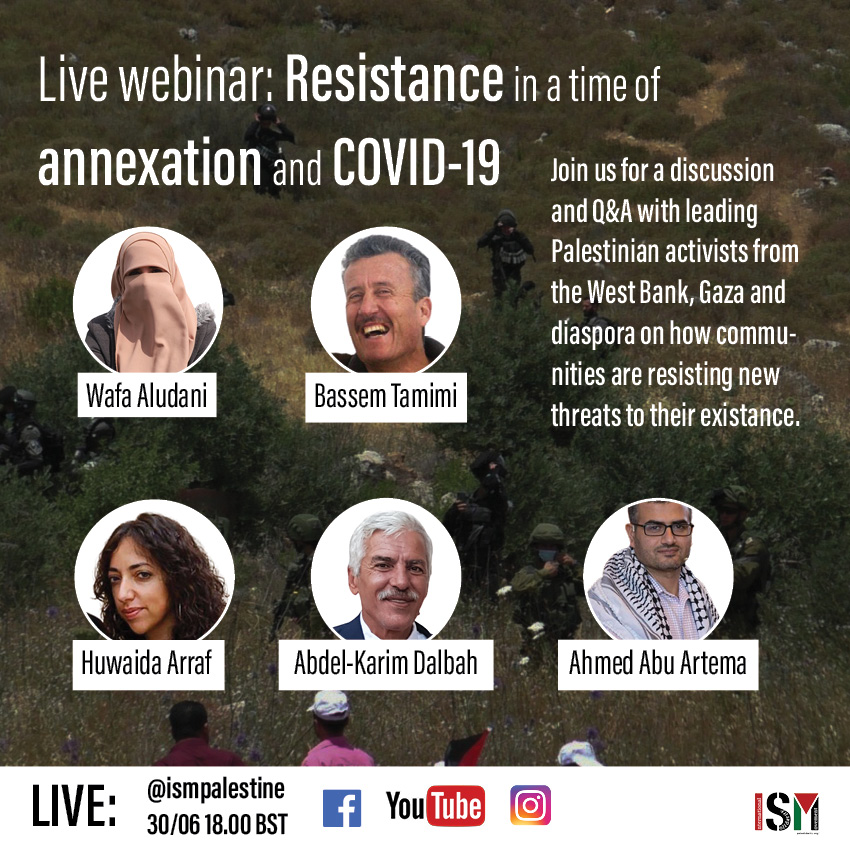Tag: Abdel Karim Dalbah
-

The International Solidarity Movement podcast episode one: An introduction to ISM
In this first episode of the International Solidarity Movement podcast, we interview Abdel Karim – who has been with the movement since the early 2000s. The ISM is a grassroots Palestinian-led organisation, with principles of non-violence , non-hierarchy, and anti oppression. It makes all of its decisions by consensus. Over the last 20 years it…
-

Webinar: International Solidarity & Resisting Colonization
Join ISM Northern California on Saturday, December 19, 2020, for a webinar to learn about the current situation on the ground in Palestine, grassroots resistance, and the work of the International Solidarity Movement.
-

Resistance in a time of annexation and Covid-19 – an ISM webinar
ISM will be hosting a webinar on June 30th, Tuesday 20:00 Ramallah time, on annexation, COVID-19, resistance and international solidarity with the Palestinian struggle for equality and justice.
